Published on 8 December, 2024
Digital resilience key to safeguarding digital sovereignty, says DCO Secretary-General at lecture


Riyadh, December 8, 2024: Digital technologies today are not only tools for communication and enhancing efficiency but also fundamental drivers that shape international policy strategies, stated Ms. Deemah AlYahya, Secretary-General of the Digital Cooperation Organization (DCO), during a lecture at the Prince Saud Al Faisal Institute for Diplomatic Studies in Riyadh, Saudi Arabia. Digital technologies strengthen digital resilience and self-sufficiency, both essential to safeguarding “digital sovereignty” and ensuring nations can make independent decisions in shaping their futures within the global digital economy.
In a lecture titled “Digital Transformation and Contemporary Diplomacy”, attended by heads of diplomatic missions and international organizations accredited in the Kingdom, Secretary-General AlYahya elaborated on the “complementary relationship” between technology and diplomacy, emphasizing the importance of tech diplomacy. She highlighted that this presents both opportunities and challenges, noting that technology can serve as a catalyst for cooperation, innovation, and economic growth, while at the same time can exacerbate geopolitical and civil conflicts, and impact security and peace.
She addressed various aspects of digital diplomacy, explaining that “digital sovereignty” hinges on the resilience of the digital economy, a nation’s self-reliance in its digital infrastructure, the safeguarding of its data, and control over its technologies. This enables nations to make decisions free from external interference, representing a critical step toward bolstering national security and innovation, while ensuring full control over digital resources to adapt to global changes.
She highlighted the growing threats in the digital world, such as unexpected disruptions, cyberattacks, and misinformation, emphasizing their status as real risks to regional and international security. She proposed strategies to counter these threats, including enhancing international digital cooperation, developing legal and regulatory frameworks, and promoting local technological innovations to boost digital resilience and reinforce “digital sovereignty.”
The Secretary-General pointed to Saudi Arabia as a practical example of leveraging technology to transform its economy and enhance its global leadership through Saudi Vision 2030 and other ambitious projects, pointing to the Kingdom’s strategies related to data and artificial intelligence in this context.
She highlighted various international case studies, noting that the darker side of the digital age can give rise to challenges such as abrupt IT outages, cyberattacks and misinformation. She urged nations to adopt innovative and collaborative solutions, emphasizing that “building a secure digital environment is a shared responsibility that requires coordinated strategies.”
Secretary-General AlYahya called for the adoption of international treaties and charters that recognize the need for multilateral cooperation, strengthen digital resilience, and protect nations’ digital sovereignty. She emphasized the pivotal role of diplomacy in advancing international digital cooperation and maintaining global security, enabling societies to capitalize on promising opportunities in the digital economy while mitigating its risks.
The Digital Cooperation Organization is a global multilateral organization founded in November 2020. It brings together 16 Member States collectively representing more than USD 3.5 trillion in GDP and a population of over 800 million, 70% of whom are under the age of 35. DCO aims to enable digital prosperity for all by unifying efforts to advance digital transformation and promote common interests.
-Ends-
About the Digital Cooperation Organization (DCO)
The Digital Cooperation Organization is the world’s first standalone international intergovernmental organization focusing on the acceleration of the growth of an inclusive and sustainable digital economy. It is a global multilateral organization founded in November 2020 that aims to enable digital prosperity for all.
The DCO brings together the Ministries of Communications and Information Technology of its Member States, and is focused on empowering youth, women, and entrepreneurs, leveraging the accelerative power of the digital economy, and leapfrogging with innovation to drive economic growth and increase social prosperity.
The Digital Cooperation Organization (DCO) brings together ministries of communications and information technology in 16 countries: the Kingdom of Bahrain, the People’s Republic of Bangladesh, the Republic of Cyprus, the Republic of Djibouti, the Republic of The Gambia, the Republic of Ghana, the Hellenic Republic (Greece), the Hashemite Kingdom of Jordan, the State of Kuwait, the Kingdom of Morocco, the Federal Republic of Nigeria, the Sultanate of Oman, the Islamic Republic of Pakistan, the State of Qatar, the Republic of Rwanda, and the Kingdom of Saudi Arabia – collectively representing nearly $3.5 trillion in GDP and a market of nearly 800 million people, more than 70% of whom are under the age of 35.
Through cooperation and strategic dialogue, we drive the facilitation of mutually advantageous cross-border legislation. The DCO seeks to establish within its Member States the optimal infrastructure and policies for the rapid creation of inclusive and equitable digital economies within which all people, businesses, and societies can innovate and thrive. The DCO’s vision is to work towards a world in which every nation, business, and person has a fair opportunity to prosper in the digital economy.
In pursuit of the Member States’ common interests, the DCO works collaboratively with governments, the private sector, international organizations, NGOs, and civil society to enable more inclusive digital transformation and the growth of the digital economy.
The DCO’s key initiatives include programs to enhance cross-border data flows, promote market expansion for SMEs, empower digital entrepreneurs, and advance digital inclusion among women, and the youth, and other underrepresented populations.
More information about the DCO can be found at
For media enquiries, please contact media@DCO.org
